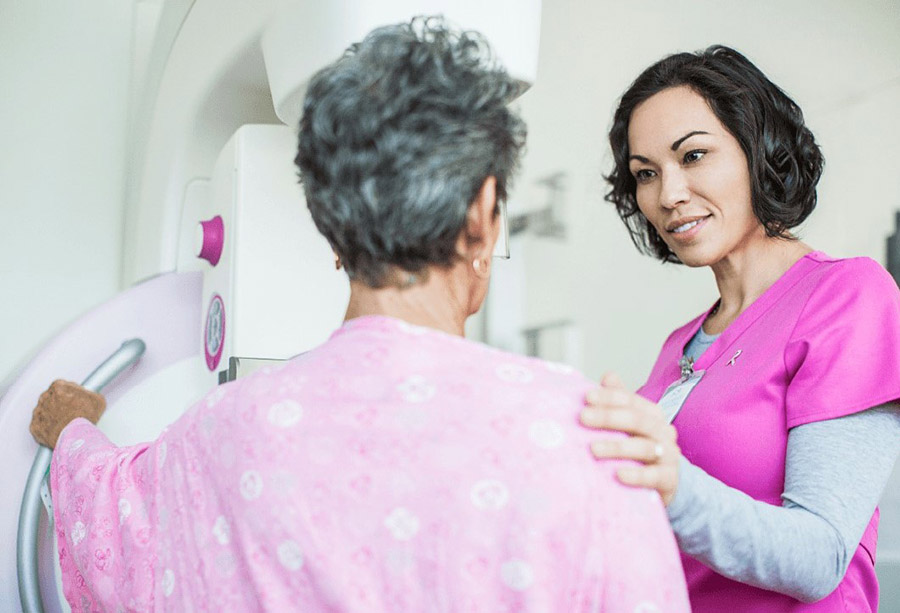
At Frisbie Memorial Hospital's Breast Imaging Center, our breast health providers recommend an annual screening mammogram after the age of 40 per American Board of Radiology guidelines.
Breast cancer screening has been proven to find cancers at an earlier and more treatable stage with a greater chance of a cure. At Frisbie Memorial Hospital's Breast Imaging Center, perform mammograms and educate patients about how they can avoid or fight breast cancer.
The American College of Radiology recommends the following guidelines for who should receive a breast cancer screening:
- Women who are 40 to 44 years old should have annual mammograms as a breast cancer screening
- Women between 45 and 54 years old should get mammograms every year
- Women are who 55 years old and older should have mammograms every two years or continue yearly screening
Breast cancer risk factors
There are factors you can and cannot control in terms of developing breast cancer. Some factors increasing your breast cancer risk are:
- Family history of breast, ovarian or prostate cancer
- Older age
- Having your first period before 12 years old
- High bone density
- A male family member diagnosed with breast cancer
- Personal history of breast or ovarian cancer
- Positive test for specific gene mutations
- Previous biopsy showing atypical hyperplasia or cancer
- Prior radiation for childhood cancer
- Starting menopause after 55 years old
Some controllable risk factors can increase the likelihood of developing breast cancer, such as:
- Being exposed to a large amount of radiation
- Being overweight
- High levels of estrogen in the blood
- Obesity
- Not breastfeeding
- Having children or having your first child at 35 years old or older
- Postmenopausal hormone use
- Taking birth control pills for five years or longer
Frisbie Memorial Hospital’s new state-of-the art Women’s Imaging Center provides comprehensive breast care services, from prevention planning and screenings to advanced diagnostics, including the groundbreaking technology designed to make breast imaging faster and more comfortable.
References:
- American Cancer Society. How Common is Breast Cancer? Jan. 2021. Available at: https://www.cancer.org/cancer/breast-cancer/about/how-common-is-breast-cancer.html
- American Cancer Society. Cancer Facts & Figures 2021. Available at: https://www.cancer.org/content/dam/cancer-org/research/cancer-facts-and-statistics/annual-cancer-facts-and-figures/2021/cancer-facts-and-figures-2021.pdf